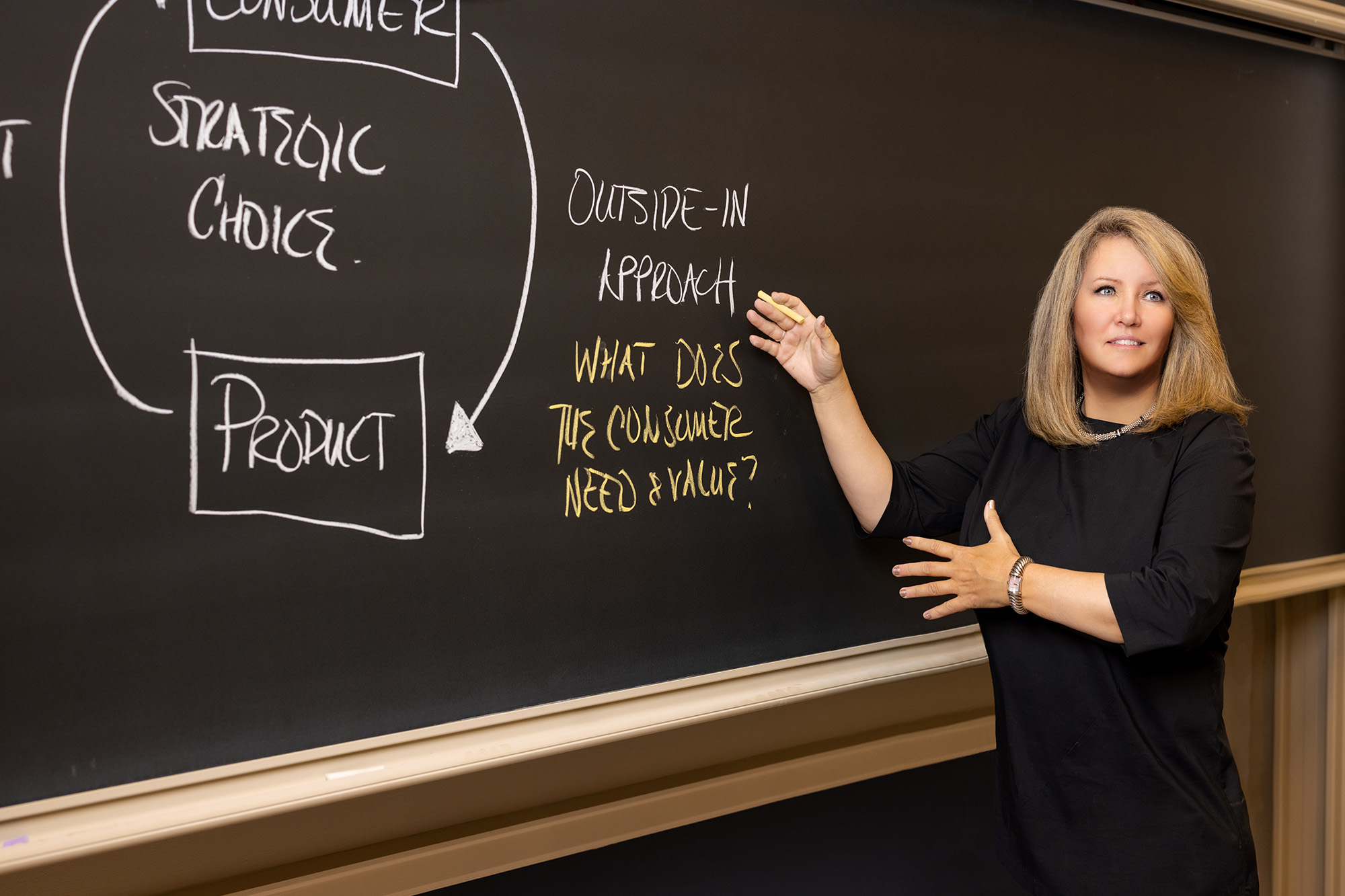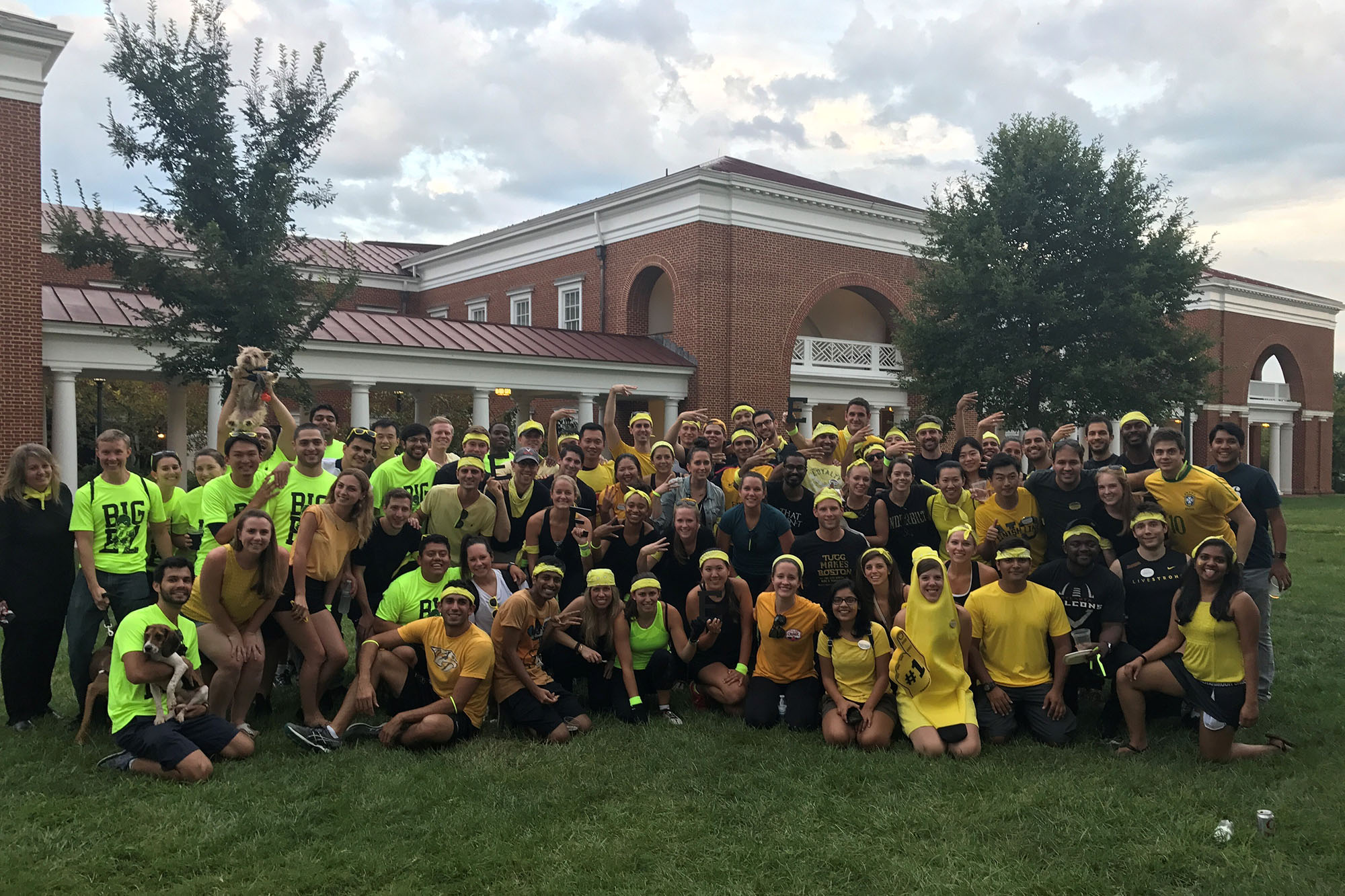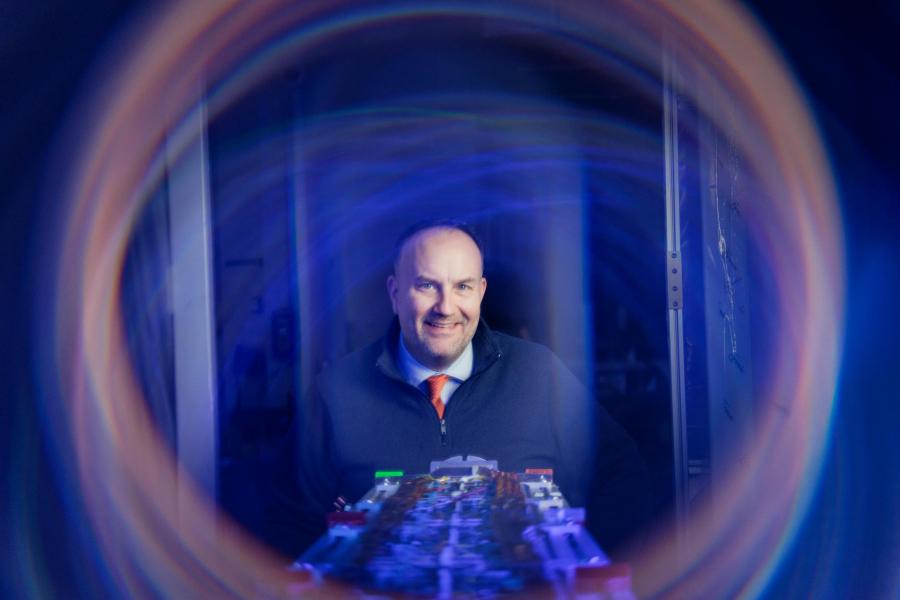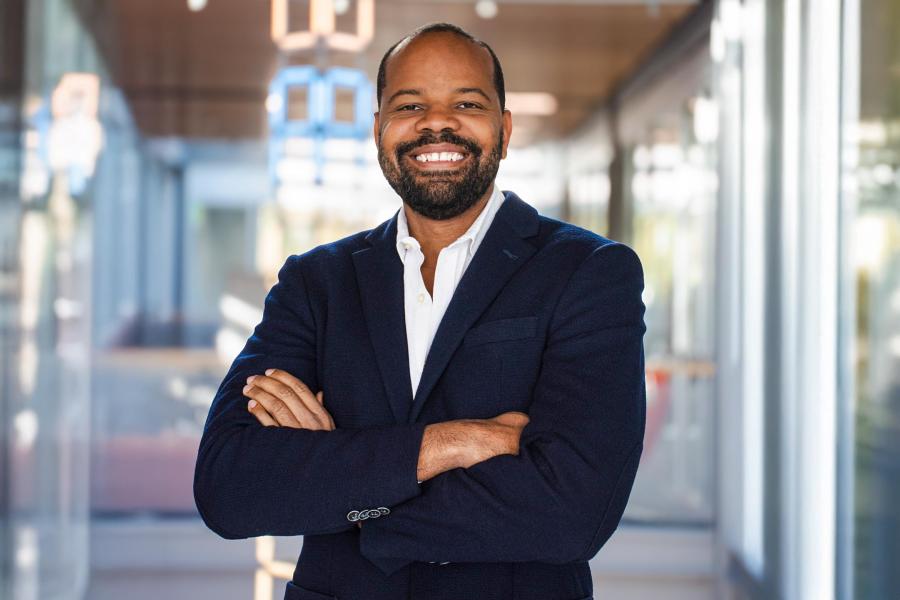“In my research, if I’m seeking to help solve problems that boards, CEOs or CMOs have, I need to connect with them and listen to them in addition to looking at generalizable data,” she said. “There is power, depth of insight, in combining data with qualitative insight. Procter & Gamble taught me you want both sides. The qualitative aspects provide the depth of insight, and the quantitative research provides empirical evidence that it is more than an anecdote – and both help provide deeper into what is true.”
Whitler was able to share that experience with her students, Fasano said. In fact, her lessons came in handy within his first two months of working at Bayer.
“I was doing a deep competitor analysis of the category I was now assigned to for my brand and I ended up developing positioning statements. That’s how she taught us,” Fasano said. “It was literally taking almost exactly to a ‘T’ what she taught us in her brand management class and putting it into a presentation that ended up underpinning a lot of strategy. It was very practical and something I put to immediate use in an executive presentation that I had to deliver in my first six weeks of work.”
Whitler is there even after the class is over. When Goodman found herself at the end of tough day working for a startup company, her husband recommended a call to the professor.
“She has a particularly adept way of listening through a situation, providing the hard truth when needed, and working with me to create a path forward. She did all of this over a three-hour phone call consisting of tough love, tears and lots of laughter,” Goodman recalled. “She helped me probably more than she even knows, and now I am happily in a wonderful role, thanks to her.”
Although she loved her career in the executive suite, Whitler had planned in her 20s to change careers for the second half of her life. She made the decision after her pastor gave her a book called “Half Time: Changing Your Game Plan from Success to Significance.”
The book ended up pushing her to work extra hard in order to retire in her 40s and reassess her life.
“I started asking, ‘What is it I want to do?’ So, I took some time off and spent 10 days on vacation and realized that just wasn’t for me,” she laughed. “Next question was, ‘What job do I want to do, and why, if money was not an object?’ I wanted to work forever, and so I searched for a job that didn’t feel like work, one that kept me intellectually challenged and one where I felt I could make a difference.”
A few stints as a guest lecturer, being around young people with hope, optimism and energy, and working closely with academics while in corporate America convinced her to return to college to become a professor. About 20 years after getting her MBA, she gave up her job and for the next five years spent her savings to gain a doctorate from Indiana University’s Kelley School of Business. She joined the Darden faculty in 2014.
Back at School
As a professor, Whitler has published 19 articles in journals, Harvard Business Review and Sloan Management Review. She also has written articles for Forbes magazine that have garnered over 4.5 million online views. In 2021, she published a book, “Positioning for Advantage: Techniques and Strategies to Grow Brand Value.” In 2022, she published “Athlete Brands: How to Benefit from Your Name, Image, and Likeness.”
“I’m extremely grateful to be at Darden,” Whitler said. “Throughout my time here, any resource I needed to help pursue research was supported. When I was asked to write the NIL book, I needed [research assistant] support. The dean and head of faculty didn’t blink and provided it, as well as giving me time to support our athletes.”
She also appreciates Darden’s emphasis on impacting students and teaching.
“We’re preparing the next generation of business leaders. It’s critical that I have a compassion for and an understanding of the world that we’re sending them into,” Whitler said.
“At many universities, receiving good teaching reviews is a signal that you aren’t spending enough time on research. I was specifically told this while getting my Ph.D. Not at Darden,” she said. “It’s one thing for universities to talk about impact, but it’s another thing to actually appreciate, recognize and reward it. I am simply fortunate that Darden hired me and that we have the leadership we do that encourages us to have broad impact through scholarship, teaching and helping support practicing managers.”
She gets no argument from her students.
“Though she has a wealth of knowledge and has an award-worthy CV, she humbly teaches, guiding students toward the answer rather than hosting a 75-minute oration,” Goodman said. “She really knows all of her students, understands their goals, and provides support to get them to where they want to be.”
Fasano agreed.









